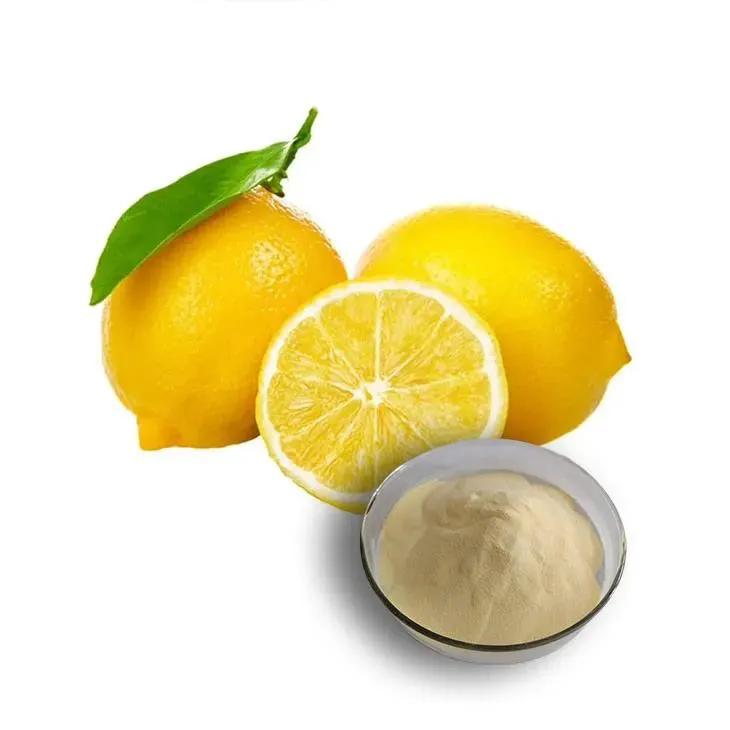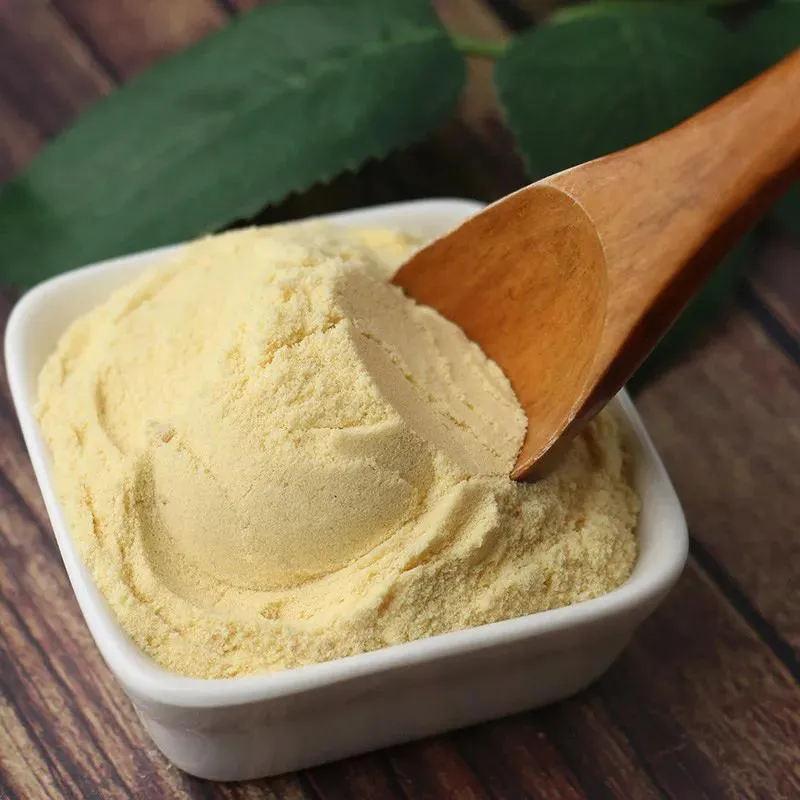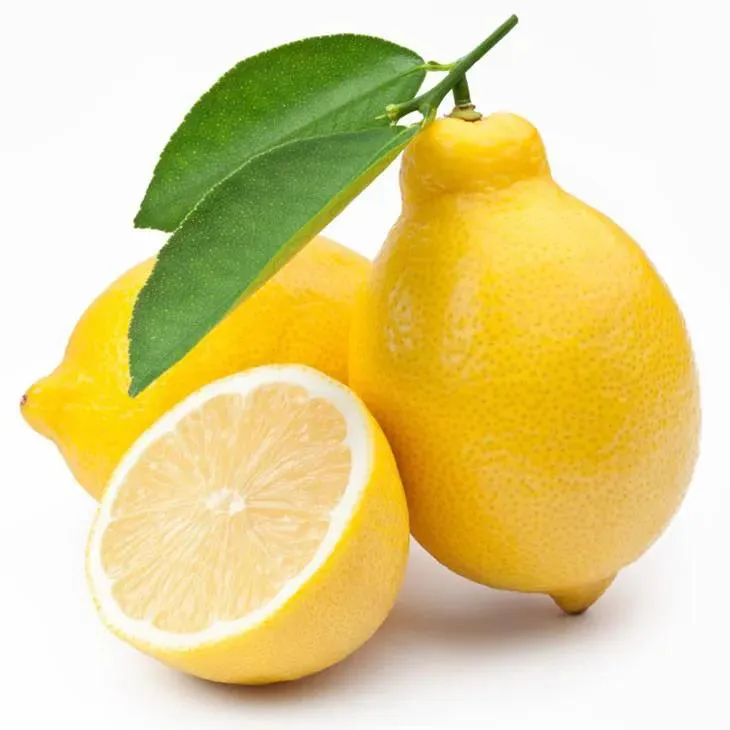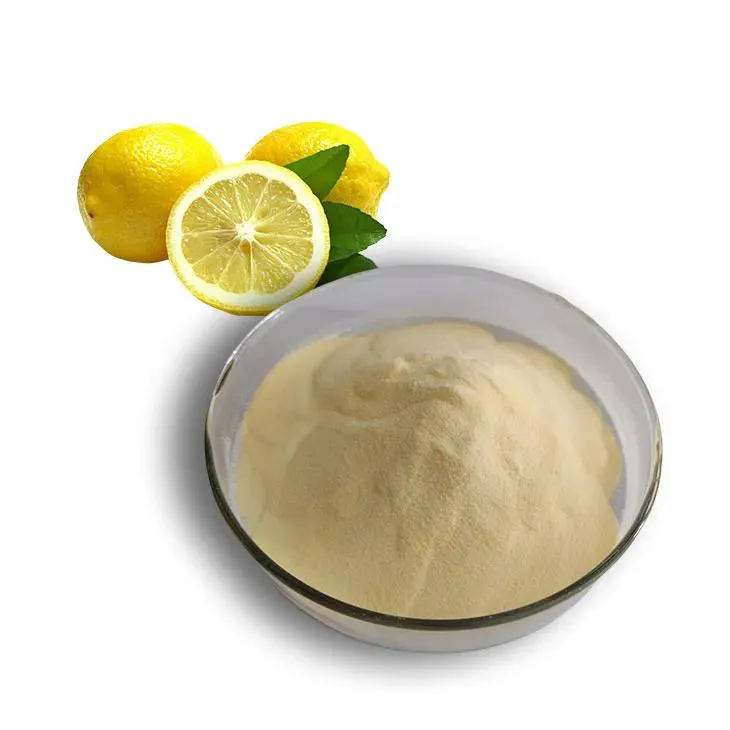- 0086-571-85302990
- sales@greenskybio.com
4 Things Consumers and Manufacturers of Lemon Juice Powder Should Know.
2024-12-14

1. Quality of Raw Materials
For Consumers: When purchasing Lemon Juice Powder, it is crucial to be aware of the quality of the raw materials used. High - quality Lemon Juice Powder is typically made from fresh, ripe lemons. Look for products that mention the source of their lemons. If the lemons are sourced from regions known for high - quality citrus production, it is more likely that the resulting powder will have a superior flavor and nutritional profile.
Consumers should also check for any additives or preservatives in the product. Pure Lemon Juice Powder should ideally have minimal additives. Some products may add anti - caking agents to prevent clumping, but excessive use of artificial additives can be a sign of lower - quality product.
For Manufacturers: Sourcing high - quality lemons is the foundation of producing good lemon juice powder. Manufacturers need to establish reliable supply chains to ensure a consistent supply of fresh lemons. This may involve working directly with lemon growers or through trusted suppliers.
Quality control at the raw material stage is essential. Lemons should be inspected for ripeness, freshness, and freedom from diseases or pests. Only lemons that meet strict quality standards should be used in the production process. Additionally, manufacturers need to consider the variety of lemons used. Different lemon varieties can have variations in flavor, acidity, and nutritional content, so choosing the right variety can impact the final product's characteristics.

2. Production Process
For Consumers: Understanding the production process can give consumers an idea of what they are consuming. Lemon juice powder is usually produced through a process of extraction, concentration, and drying. The extraction method can affect the purity and flavor of the final product. For example, cold - pressed extraction is often considered a more natural and higher - quality method as it helps to preserve the natural flavors and nutrients of the lemons.
Consumers should also be aware of any potential contaminants during the production process. For instance, if the drying process is not carried out in a clean and controlled environment, there may be a risk of microbial contamination.
For Manufacturers: The production process needs to be carefully optimized to ensure product quality. During extraction, manufacturers should aim to maximize the yield of juice while maintaining its quality. This may involve using advanced extraction technologies such as centrifugal extraction or membrane filtration.
Concentration is another important step. The goal is to remove water from the lemon juice while concentrating the flavors and nutrients. This process needs to be carefully controlled to avoid over - concentration, which can lead to a loss of flavor or the formation of unwanted by - products.
Drying is the final and critical step. There are different drying methods available, such as spray drying and freeze - drying. Spray drying is a more common and cost - effective method, but freeze - drying can better preserve the nutritional and flavor properties of the lemon juice. Manufacturers need to choose the drying method based on their production requirements and target market.

3. Nutritional Value
For Consumers: Lemon juice powder can be a convenient source of certain nutrients. It is rich in vitamin C, which is an essential nutrient for maintaining a healthy immune system, promoting skin health, and aiding in the absorption of iron. A single serving of lemon juice powder can provide a significant portion of the recommended daily intake of vitamin C.
In addition to vitamin C, lemon juice powder may also contain other beneficial compounds such as flavonoids and citric acid. Flavonoids have antioxidant properties, which can help protect the body against oxidative stress. Citric acid can play a role in digestion by increasing stomach acid production and may also have some antibacterial properties.
However, consumers should be aware that the nutritional value can be affected by various factors such as the production process and storage conditions. For example, if the powder is exposed to high temperatures or humidity during storage, it may lose some of its nutritional content over time.
For Manufacturers: Manufacturers need to ensure that the production process preserves the nutritional value of the lemon juice as much as possible. This may involve using gentle processing methods and proper packaging to protect the powder from environmental factors.
They also have the responsibility of providing accurate nutritional information on the product label. This includes listing the amount of vitamin C, other nutrients, and any potential allergens. Manufacturers should conduct regular nutritional analysis of their products to ensure that the label information is up - to - date and accurate.

4. Packaging and Storage
For Consumers: Proper packaging and storage are important to maintain the quality of lemon juice powder. Look for products that are packaged in airtight containers. This helps to prevent moisture absorption, which can cause the powder to clump or spoil.
Consumers should store the lemon juice powder in a cool, dry place, away from direct sunlight. If stored properly, the powder can have a relatively long shelf life. However, once the package is opened, it is advisable to use the product within a reasonable time frame to ensure freshness.
For Manufacturers: Packaging design should not only be aesthetically pleasing but also functional. It should protect the product from moisture, oxygen, and light. Manufacturers can consider using vacuum - sealed packaging or adding desiccants to the package to further enhance the shelf life of the product.
Storage conditions during production and distribution also need to be carefully controlled. The product should be stored in a clean, dry, and temperature - controlled environment to prevent any quality degradation. Additionally, manufacturers should conduct regular quality checks on stored products to ensure that they remain within acceptable quality limits.

FAQ:
What are the main ingredients in lemon juice powder?
Lemon juice powder is mainly made from dehydrated lemon juice. It typically contains natural components such as citric acid, vitamins (like vitamin C), minerals, and some natural flavor compounds. However, some commercial products may also have added ingredients like anti - caking agents to prevent clumping.
How should consumers store lemon juice powder?
Consumers should store lemon juice powder in a cool, dry place. It is best to keep it in an airtight container to prevent moisture absorption, which can cause clumping or spoilage. Avoid storing it near sources of heat or in direct sunlight.
What quality standards should manufacturers follow?
Manufacturers should adhere to food safety and quality standards. This includes ensuring the purity of the raw materials (using high - quality lemons), proper manufacturing processes to retain the nutritional value and flavor, and compliance with packaging and labeling regulations. For example, they need to accurately label the ingredients, net weight, and any potential allergens.
How can consumers ensure they are buying high - quality lemon juice powder?
Consumers can look for products from reputable brands. Check the label for information on the source of the lemons, any added ingredients, and certifications such as organic or non - GMO if those are important to them. Reading customer reviews can also provide insights into the quality of the product.
What are the potential uses of lemon juice powder in food?
Lemon juice powder can be used in a variety of ways in food. It can be added to baking recipes to give a lemony flavor, used in marinades for meats or fish to add acidity and flavor, or sprinkled on fruits or salads for a tangy taste. It can also be used in making beverages, such as lemonade or added to cocktails.
Related literature
- The Production and Quality Control of Dehydrated Fruit Powders"
- "Nutritional and Flavor Aspects of Lemon - Based Food Products"
- "Food Safety Considerations in Powdered Fruit Product Manufacturing"
- ▶ Hesperidin
- ▶ Citrus Bioflavonoids
- ▶ Plant Extract
- ▶ lycopene
- ▶ Diosmin
- ▶ Grape seed extract
- ▶ Sea buckthorn Juice Powder
- ▶ Fruit Juice Powder
- ▶ Hops Extract
- ▶ Artichoke Extract
- ▶ Mushroom extract
- ▶ Astaxanthin
- ▶ Green Tea Extract
- ▶ Curcumin
- ▶ Horse Chestnut Extract
- ▶ Other Product
- ▶ Boswellia Serrata Extract
- ▶ Resveratrol
- ▶ Marigold Extract
- ▶ Grape Leaf Extract
- ▶ New Product
- ▶ Aminolevulinic acid
- ▶ Cranberry Extract
- ▶ Red Yeast Rice
- ▶ Red Wine Extract
-
Uridine-5'-monophosphate Disodium salt
2024-12-14
-
Diosmin
2024-12-14
-
Green coffee bean Extract
2024-12-14
-
Avocado Extract Powder
2024-12-14
-
Shikone Extract
2024-12-14
-
Curcumin Extract
2024-12-14
-
Konjac Powder
2024-12-14
-
Natural grape seed extract
2024-12-14
-
Cactus Extract
2024-12-14
-
Phellodendron Extract
2024-12-14





















